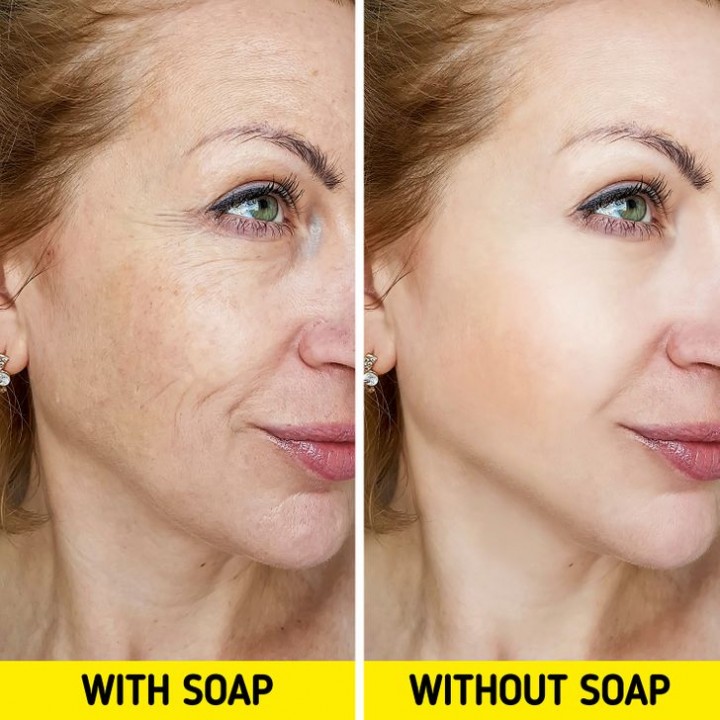Apa Yang Terjadi Pada Tubuh Jika Kita Sedang Tertidur Ini Awabannya
The Importance of Sleep for Our Bodies

Have you ever wondered what happens to our bodies while we are in a deep slumber? Sleep is an essential part of our daily routine that rejuvenates both our mind and body. During this restful state, various biological processes occur within us, impacting our overall health in ways we may not even be aware of. In this article, we will explore the fascinating journey our bodies go through during sleep and why getting enough quality sleep is crucial for our well-being.
The Stages of Sleep
While we sleep, our bodies go through different stages, each serving a specific purpose. These stages are known as rapid eye movement (REM) sleep and non-rapid eye movement (NREM) sleep.
NREM sleep is further divided into three stages: N1, N2, and N3. N1 is the transition period between wakefulness and sleep, where brain waves begin to slow down. N2 is a light sleep stage where our body temperature decreases, and our heart rate and breathing become more regular. Finally, N3 is a deep sleep stage, also known as slow-wave sleep, when our body repairs and regrows tissues, boosts our immune system, and strengthens our bones and muscles.
REM sleep, on the other hand, is the dreaming phase of sleep. During this stage, our brain activity increases, and our eyes move rapidly behind closed lids. It is when vivid dreams occur, allowing our mind to process emotions and memories from the day.
The Body’s Biological Processes During Sleep
While we sleep, our bodies perform crucial functions that contribute to our overall health and well-being:
1. Brain Restoration: Sleep plays a vital role in brain restoration. It helps improve cognitive functions, memory, and concentration. During sleep, our brain consolidates information, enhancing our ability to learn and retain new information.
2. Hormone Regulation: Our hormone levels fluctuate during sleep. Lack of sleep can disrupt the balance of hormones responsible for appetite regulation, leading to increased hunger and potential weight gain. It can also affect hormone production related to growth and stress management.
3. Cellular Repair and Growth: Deep sleep stimulates cellular repair and growth throughout our bodies. It helps repair damaged cells, promotes the production of growth hormones, and boosts the immune system, helping fend off illnesses and infections.
The Impact of Sleep Deprivation
When we do not get enough quality sleep, our bodies experience various negative effects:
1. Cognitive Impairment: Lack of sleep impairs our cognitive functions, making it harder to concentrate, remember information, and make decisions. It can also negatively affect our mood and emotions, leading to increased irritability and reduced ability to handle stress.
2. Weakened Immune System: Sleep deprivation weakens our immune system, making us more susceptible to infections and diseases. It can also slow down the healing process of wounds and increase the risk of chronic illnesses such as diabetes, heart disease, and obesity.
3. Increased Risk of Accidents: Fatigue resulting from insufficient sleep increases the risk of accidents, both on the road and in the workplace. It impairs our reaction time and decision-making abilities, potentially endangering ourselves and others.
The Benefits of Quality Sleep
On the contrary, obtaining adequate and quality sleep holds numerous benefits:
1. Enhanced Memory and Learning: Quality sleep improves memory retention, allowing us to perform better academically and professionally. It enhances our problem-solving skills, creativity, and ability to think critically.
2. Emotional Well-being: Sufficient sleep positively impacts our emotional well-being. It helps regulate our moods, reducing the likelihood of mood swings, depression, anxiety, and other mental health issues.
3. Improved Physical Performance: Quality sleep improves athletic performance and enhances physical stamina and coordination. It allows our muscles to repair and recover, maximizing our potential during exercise and other physical activities.
Conclusion
As we delve into the intricate processes that occur within our bodies while we are in deep slumber, it becomes clear that getting enough quality sleep is paramount. From brain restoration and hormone regulation to cellular repair and growth, sleep plays an indispensable role in maintaining our overall health and well-being. Without sufficient sleep, we risk cognitive impairment, weakened immune systems, and increased accident risks.
Ensure you prioritize sleep and create a restful environment that promotes uninterrupted sleep. With sufficient quality sleep, you can experience enhanced memory and learning, emotional well-being, and improved physical performance. So, remember to give your body the sleep it deserves for a healthier and happier life!





